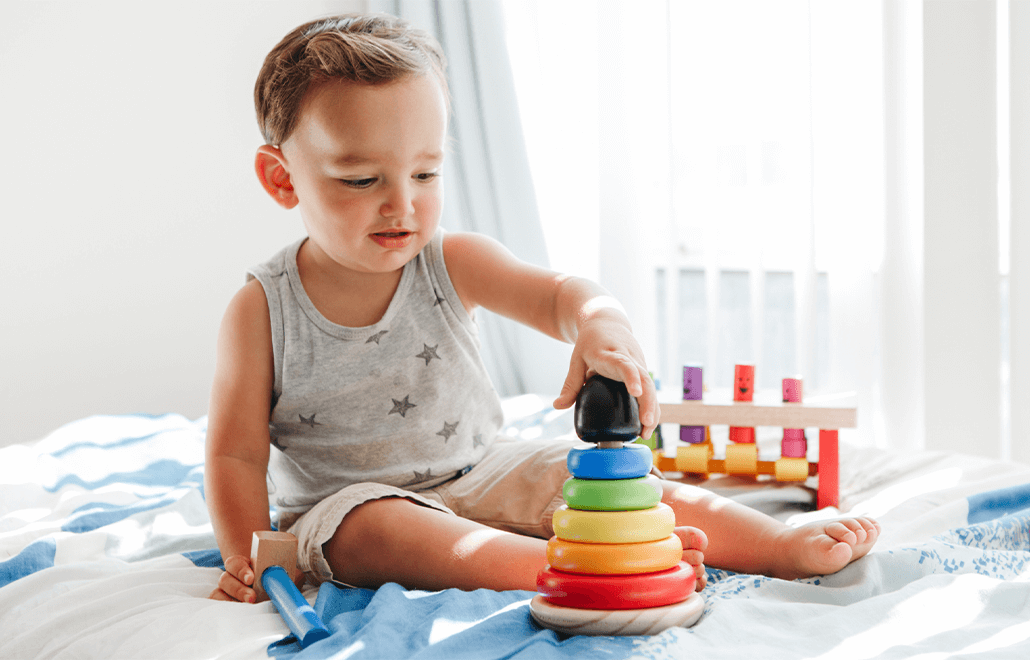
06 Sep Activities for Babies (0-18 Months)
Activities for Babies (0-18 Months)
Are you wondering how to play with your baby and which developmental activities to try? The good news is that activities for babies don’t need to be complicated to be effective. Whether your little one is just a few days old or approaching their first birthday, engaging in playful, educational activities is crucial for their development. At Continuum Pediatrics, we’re excited to share some of our favorite fun and developmental activities for babies from birth to 18 months.
Activities for Newborns (0-2 Months)
During the newborn phase, your baby is rapidly growing and changing. They’re starting to notice their hands, respond to familiar voices, and even hold their head up for short periods. Here’s how you can engage with your newborn:
- Make Silly Faces: Interacting face-to-face promotes bonding and helps with your baby’s social and emotional development.
- Talk to Your Baby: Narrate your daily activities or simply talk to them. Your voice is soothing and helps with language development.
- Tummy Time: Begin with just a few minutes a day and gradually increase as your baby grows stronger. Tummy time helps with muscle development and coordination.
Activities for Babies 3-6 Months
As your baby enters this stage, they’ll start rolling over, babbling, and sitting with support. They’re also staying awake for longer periods between naps. Here are some fun activities to try:
- Playmat Fun: Use a playmat or play gym to encourage reaching, rolling, and exploring. Place toys just out of reach to motivate movement.
- Sing Songs with Actions: Songs like “Itsy Bitsy Spider” and “Wheels on the Bus” are great for engaging your baby and teaching them rhythm and movement.
- Object Tracking: Move objects slowly across your baby’s field of vision to help them practice tracking with their eyes.
Activities for Babies 6-12 Months
During this stage, your baby is likely crawling, sitting up independently, and showing a keen interest in exploring their environment. Here’s how to keep them engaged:
- Sensory Play: Provide containers with different textured objects for your baby to explore. Sensory play helps with cognitive development and fine motor skills.
- Interactive Games: Play peekaboo or hide objects under small boxes to develop object permanence and encourage problem-solving.
- Encourage Mobility: Support your baby in standing up and moving around. Encourage crawling by placing toys just out of reach.
Activities for Toddlers (12-18 Months)
As your baby approaches their first birthday, they’re becoming more mobile and expressive. They may start walking, using simple words, and showing their personality. Engage them with these activities:
- Stacking and Sorting: Use blocks or household items to practice stacking and sorting. This builds cognitive and fine motor skills.
- Role Play: Encourage pretend play with toys that mimic everyday life, like a toy phone or kitchen set. This helps with social skills and imagination.
- Outdoor Exploration: Go for walks, explore parks, or collect natural items like leaves and sticks. Outdoor activities stimulate curiosity and offer new experiences.
Safety Tips
As your baby grows and becomes more mobile, it’s important to ensure their environment is safe. Check for any potential hazards and make sure furniture is anchored and sharp edges are covered.
Remember, every baby develops at their own pace, so feel free to adapt these activities to fit your baby’s unique needs and interests. For more guidance on setting up your baby’s day or ideas for baby play, check out our additional resources.
At Continuum Pediatrics, we believe that simple, engaging activities can make a big difference in your baby’s development. Enjoy these precious moments of play and discovery with your little one!

